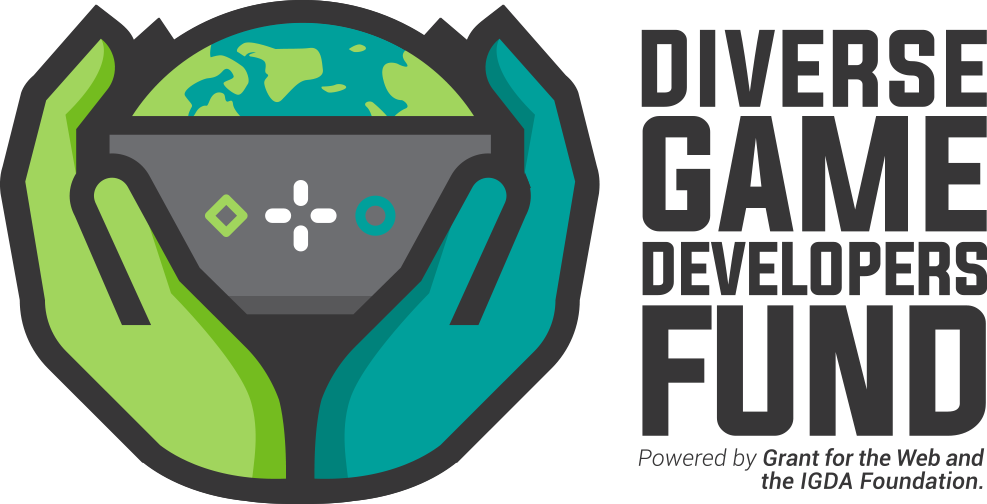
Last month, the IGDA Foundation (IGDA-F), in partnership with Grant for the Web, launched the Diverse Game Developers Fund. It’s a $300,000 initiative aimed at helping students and marginalized game developers explore avenues for revenue in an industry known to be unwelcoming to people of color and disabled persons.
According to the announcement, the fund has $200,000 set aside for direct payments to independent developers and studios, with $50,000 reserved for scholarships, and the remainder booked for cash prizes at game jams.
Nika Nour, executive director of the IGDA-F, said that the Diverse Game Developers Fund was initially proposed as a prototype fund meant to help marginalized developers get their projects off the ground. Prototyping, she explained, is often an enormous roadblock for prospective developers, and doubly so for traditionally underrepresented demographics.
“The lack of accessible prototype funding is a major contributor to the lack of diversity in game development,” Nour told GameDaily. “This initiative utilizes the IGDA-F’s existing partnerships, ample networks, and access to international independent game developers and to build awareness on Grant for the Web’s efforts.”
The goal, Nour said, is to empower developers to design games and integrate new methods as alternatives to traditional monetization. In order to accomplish this goal, the Diverse Game Developers Fund looks to subvert established industry norms, which have become ingrained obstacles to success for many indie developers.
“The video game development industry is in a predicament for entrepreneurs,” Nour explained. “The access and resources to make games are abundant for individuals and independent teams; yet, there are incredible barriers to the same developers attempting to make a living from their creative efforts. As a result, platforms and publishing groups appoint themselves king-makers for the industry, driving discoverability and marketing for a sizable cut of the proceeds.”
Because of this, Nour described the games industry as an “echo chamber” that perpetuates an established formula–a formula that has been built on an unfortunate lack of diversity. For many executives, Nour said, banking on diverse voices is seen as a risk, resulting in a homogeneous gaming landscape light on variety.
Making matters worse is the unforgiving nature of today’s indie market. A flooded marketplace means that discoverability has become a major hurdle for many would-be devs, and while the Diverse Game Developers Fund seeks to alleviate some of the pressure, the fact remains that it’s hard out there for indies.
In many cases, indie developers are forced to compromise the holdings of their properties in order to work with publishers. Often, such agreements see minimal returns for the devs themselves thanks to the hectic nature of the market and the low barrier for entry-level video game creation.

“The ability to distribute high-quality games, experiment with ideas, and find players is time-intensive and costly,” Nour noted. “Additionally, the barriers for marginalized genders and people of color in games is exceptionally high in the video game industry.”
To that end, one of the pillars of the Diverse Game Developers Fund is the $50,000 set aside for scholarships. Nour and the IGDA-F have a history of offering scholarships and providing in-person experience at the annual Game Developers Conference, although this initiative has pivoted to a primarily online format in recent years.
“We are always seeking new opportunities to provide access, funds, and opportunities to underrepresented students especially during the global pandemic,” Nour said. “Students looking to graduate soon will face challenges entering the workforce as internships are less accessible and networking opportunities are limited. To ensure that students from underserved communities are set up for success, the IGDA Foundation will continue to partner with organizations like Grant for the Web and create pipeline programs.”
In the end, the Diverse Game Developers Fund focused on a singular goal: diversifying the games industry.
“The IGDA-F believes that every person should love playing games, and the best way to achieve this goal is to support an industry that is representative of the world’s population,” Nour said.
The result, she hopes, will benefit not only individual developers but the games business as a whole. After all, when games are made by a diverse group of people, players are able to enjoy more variety in the choices available to them. It’s just good business.
“As games continue to evolve, we need to ensure that the ecosystem of game makers matches the rapid growth of the industry,” Nour said.
Sam, the Editor-in-Chief of GameDaily.biz, is a former freelance game reporter. He's been seen at IGN, PCGamesN, PCGamer, Unwinnable, and many more. When not writing about games, he is most likely taking care of his two dogs or pretending to know a lot about artisan coffee. Get in touch with Sam by emailing him at sdesatoff@rektglobal.com or follow him on Twitter.
 GameDaily.biz © 2026 | All Rights Reserved.
GameDaily.biz © 2026 | All Rights Reserved.